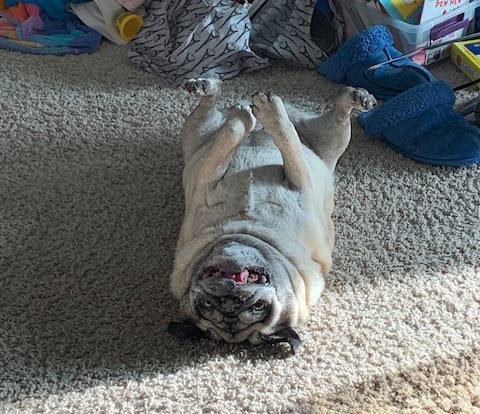The first time I attended a yoga class was at the invitation of a grad school friend in 2006. It was in a small, second-level studio full of dark oak and warm light. I remember feeling shakey, dizzy, and sweaty for most of the time. I remember the instructor gently teasing me about how difficult the first class can be for newbies. I remember I ached for days.
The next time I went to yoga was 10 years later, this time at the invitation of a colleague. This time it was in a spacious gym. This time it stuck. I attended yoga classes weekly (no, zealously!) for about three years. The class occurred during the weekday (at the campus gym) and I never missed a class when I could avoid it. I blocked the time out on my calendar, refused meetings during that time, and even went so far as to store an extra pair of clothes in my office in case I accidentally forgot my gear. Then the pandemic hit and, like many luxuries, I gave it up to focus what little mental and physical bandwidth I had on family, work, and sleep.
A year later, I am back at it. Once again at the invitation of a friend, I started attending a weekly, gentle yoga class. My body and mind are both protesting, but it’s getting easier each week. Easier to let go, to focus and to show up.
I don’t have yoga experience outside these three instructors. I can’t speak for all the various modifications, variations, and approaches to yoga practice. However, all three of these instructors have spoken about the act of showing up. As an act of courage. An act of forgiveness. An act of resistance. An act of letting go. An act of attention. An act of kindness, to oneself and to others. And as an act of community.
This simple act of showing up, of being present for a moment or an idea, can be such a significant action when coupled with attention and receptivity. When I “show up” to yoga, I move with intention layered in waves of attention. Like the breath our instructors repeatedly remind us to center, my attention rises and falls, but never completely subsides. It’s taken me years of sitting meditation to get to that level of focus. I was surprised to find it again so quickly, even while doing Zoom yoga amidst the cacophony that is working while home.
I wonder if there are parallels between this idea and some of my previous thinking about productivity. As I move through my day, constantly racing between the clock and the to-do list, am I really showing up? No, I’m reacting to a plan. Admittedly, it’s a plan I created, but reacting nonetheless. Am I really here for it?
Instead of thinking about what I need to do this week, what if instead I thought about what I need to show up for this week? More importantly as a manager and colleague, who do I need to show up for this week? Would I schedule my week differently with this mindset? Would this give me permission to say no to things that I cannot (regardless of will) be present for? In the past year, I’ve finally realized that I cannot be my best for others when I don’t practice self care, part of which mostly requires setting boundaries between myself and others, but also between myself and my expectations.
I’ve just put a library hold on “Do Nothing: How to Break Away from Overworking, Overdoing, and Underliving” by Celeste Headlee. I imagine there will be corollaries to some of this thinking to be found there, and I look forward to it.
